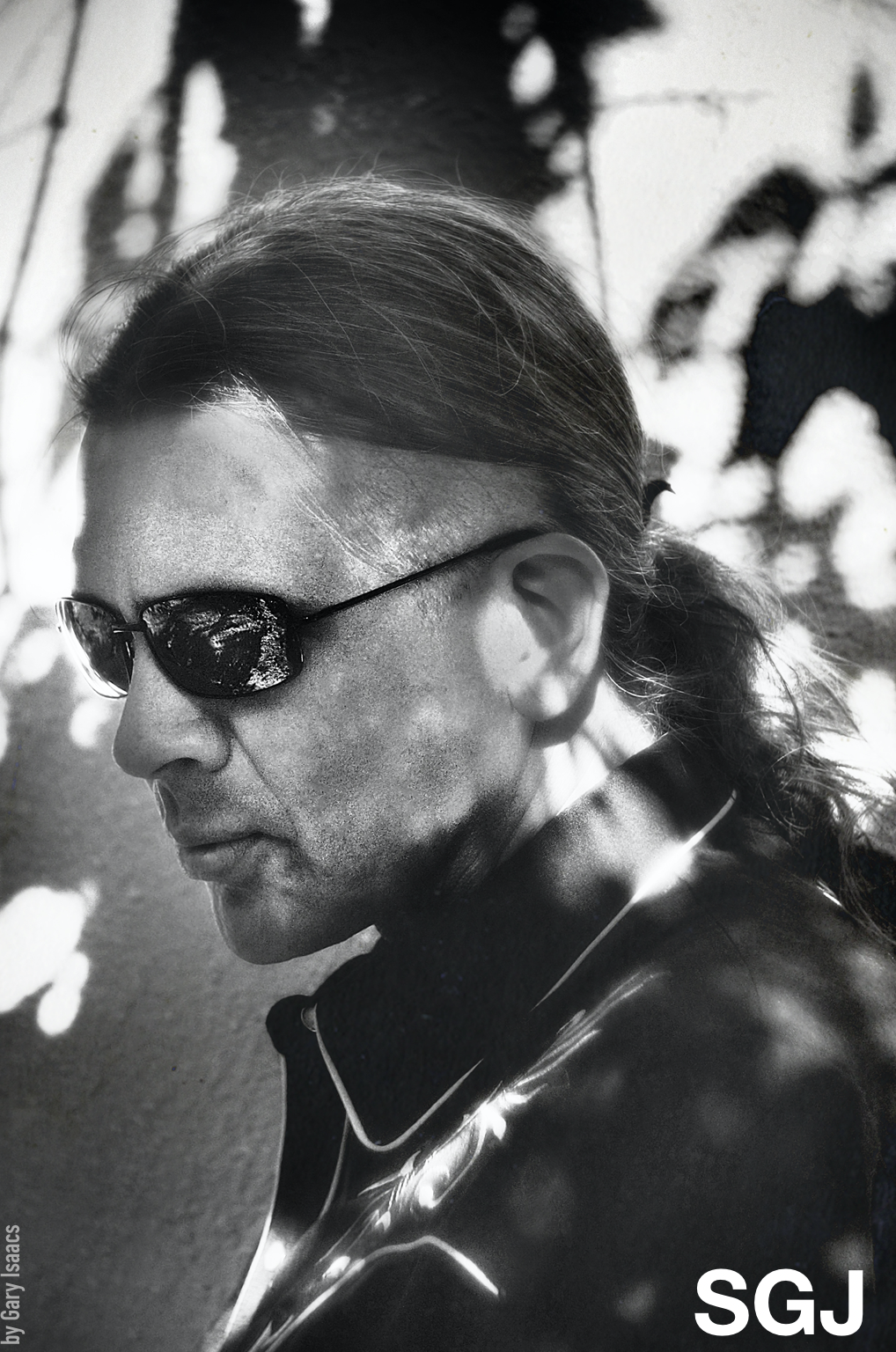As part of my quest to not write any reviews, either book or movie, I submit this by way just of suggestion: William J. Cobb‘s Goodnight, Texas (Unbridled Books, who, going by this, man, they produce some seriously clean books. And pretty too. If I’m not mistaken, they even commissioned the painting for the cover here. A press to watch, I’d say. Them and Dzanc and Chiasmus).

As for what I can say about it: I’d already committed this week to reworking this one novel, with a deadline of Monday, but then accidentally read the first page of Bill’s book, and bam, here it is two days later and I’ve just inhaled the thing. It’s got sentences like “The aftertaste of fuckup coated his tongue like poolhall chalk” and “the steady undulating hiss and guttle of rain,” and it’s got, I mean, this giant zebra fish in it, and me already pre-in love with anything from the deep like that, especially if it’s been eating horses . . . But I’m making Goodnight, Texas sound like all slick prose and flash. Not the case. A few times, reading it, I’d stop and look over the top of the book at just whatever, and think to myself that yeah, this is what I really like about reading. This experience, the total and willful immersion in a made-up but all-too-real place, these connections with people who don’t exist in fact, but do in every other way, this, I don’t know, this level of engagement some novels are able to get from the reader, from me, so that the whole time reading it, I’m at the same time nostalgic for the book, just because, keen detective that I am, I can already tell it’s got a finite number of pages here, and so’s going to be a done deal pretty soon, something I can never again experience for the first time. But that makes it sweet too, I think.
Anyway, I’ve said before, all over probably, that when I’m writing a novel, I have to hide all my PKD and Vonnegut, as those two writers just shut me down, intimidate me silent. Whereas, say, Pynchon, the way my brain has to creak around into a new shape just to parse the scenes, that’s somehow generative. With Cobb, though, it’s different than with those three. A while back, in some other interview, the question was — and this got cut in the published version, I think — what writer’s work do I most identify with? Knee-jerk response was this guy, William J. Cobb. Not for no reason, either: he was a prof where I got my MA, and, more than any other writing prof I’d had or would have, he’s probably the one who clicked that switch in my head, from Non-writer to Writer. I mean, still, everytime I put my fingers to this keyboard, I’m thinking of things he taught me way back when. Sure, things he was probably just making up from nothing, but I didn’t know that then, so took it as gospel, and can’t unlearn it now. So, reading his stuff, it’s familiar in a really odd way. Not how you’ll have read enough of a writer to know his style, his tendencies, all that, but that the way the sentences develop, the way the scenes unfold, it all feels so intuitive to me, so instinctual, like of course, how else could it have happened? Which isn’t to say his writing and mine finally look all that similar. I’m thinking they don’t. But whatever it is that’s just under the words, that’s too slippery to hold, I think it’s something I’ve stolen, and probably warped in the stealing. Which is why this novel, and his last, the super-excellent The Fire Eaters, and a lot of his stories from The White Tattoo and practically everywhere else, they all ring a pretty cool kind of true. And not just for me, I’m guessing.
©Stephen Graham Jones, 2007

 is the NYT bestselling author of 35 or so books, +350 stories, some comic books, and all this stuff here. He lives in Boulder, Colorado, and has a few broken-down old trucks, one PhD, and way too many boots. More
is the NYT bestselling author of 35 or so books, +350 stories, some comic books, and all this stuff here. He lives in Boulder, Colorado, and has a few broken-down old trucks, one PhD, and way too many boots. More
2 thoughts on “And flights of angels, all that”
Comments are closed.